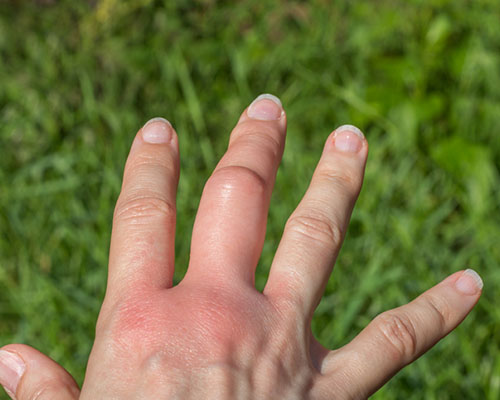Why Do Rodents Become More Active in Cold Weather?
You’re not imagining it. Rodents really do get bolder as the weather gets colder. If you’ve noticed more activity in your kitchen, roof void, or garage during winter, you’re not alone. Rats and mice are survivalists, and dropping temperatures push them to find shelter, warmth, and food—all of which are easy to access in our homes.
So, when are rats most active? While they’re around all year, rodent behaviour changes significantly in colder months. Let’s look at why that happens, what to expect, and how to stay one step ahead.

Why Are Rats More Active in Winter Than Summer?
The short answer is survival. Winter strips away the natural shelter and food sources rodents rely on outdoors. Plants die back. Insects disappear. Rain washes out nests. So rodents head indoors, looking for dry, warm places to live, and your home fits the bill.
Compared to summer, rodents in winter:
- Take more risks to get inside
- Build nests closer to humans
- Shift their activity from outdoors to indoors
- Become more visible due to lack of cover
If you’ve ever wondered: Are rats more active in summer or winter? The answer depends on where they’ve decided to settle. In summer, rats often remain outside. In winter, they’re inside your walls.
When Are Rats Most Active During the Day?
Most rodents are nocturnal, but that doesn’t mean you won’t notice signs during the day. If an infestation is large or food is scarce, you may spot activity earlier, especially around dusk or dawn.
During colder months, rodents tend to
- Be active shortly after sundown
- Explore kitchens, pantries, and bins overnight
- Retreat to wall cavities or roof spaces by morning
- Leave droppings, tracks, and chew marks behind
So, when are rats most active? Late evening to early morning is peak time, but if you’re seeing them in daylight, it may signal a growing infestation.
Are Mice Worse in Summer or Winter?
Are mice worse in summer or winter is a common question, and the answer leans heavily toward winter.
Mice have a high reproduction rate year-round, but in summer, they stay mostly outside. In winter, they follow heat, shelter, and easy access to food, which puts your home at risk.
During cold weather, mice:
- Seek out insulation and warm appliances
- Squeeze through cracks as small as 6 mm
- Build nests in pantry corners, walls, or roof voids
- Breed rapidly if not detected early
Winter also means you’re indoors more often too, which makes it easier to notice the sounds, droppings, or signs of chewing that mice leave behind.
Why Rodent Activity Increases Indoors During Winter
Beyond just temperature, several other factors drive increased indoor rodent activity in the colder months
- Outdoor food sources dry up
- Their natural predators become less active
- Human homes become more inviting due to heating and stored food
- Gaps under doors, broken vent covers, or roof openings go unnoticed
Rodents only need a few minutes to move in. And once they do, they can go unnoticed for weeks while they nest, breed, and explore the rest of your home under the cover of darkness.
That’s why preventative rat and rodent control becomes more important in winter, even if you haven’t seen a rodent yet.
Signs You Might Have a Winter Rodent Problem
Watch for these signs during the colder months
- Droppings along baseboards or in drawers
- Scratching or chewing sounds at night
- Gnaw marks on food packaging or electrical cords
- Strong, musky odours in enclosed areas
- Pets behaving oddly around walls or under furniture
If you notice more than one of these signs, it’s likely time to speak to a professional. Many customers call for rodent pest removal once they start hearing things at night or spot damage that wasn’t there a few days earlier.
How to Reduce Rodent Activity During Cold Weather
You can take a few simple steps to make your home less inviting
- Seal up gaps and cracks around doors, vents, and pipes
- Store food in airtight containers
- Clean up crumbs, pet food, and spills daily
- Clear clutter in sheds, garages, and roof voids
- Trim vegetation away from the house
But if rodents have already moved in, prevention won’t be enough. That’s where E1 comes in.
How E1 Pest Solutions Can Help
Our team understands rodent behaviour, especially how it shifts with the seasons. We know what they’re looking for, where they’re nesting, and how to remove them safely.
Our winter rodent pest removal service includes:
- Thorough inspection of roof voids, kitchens, and storage areas
- Safe, low-tox baiting and trapping options
- Nest detection and removal
- Entry point advice and sealing recommendations
- A 7-day follow-up and satisfaction guarantee
We also offer bundled services with termite checks, spider control, or wasp removal. If you’re seeing signs across multiple areas, just let us know and we’ll tailor your treatment.
Stay Ahead of Rodent Problems This Winter
Rodents might be small, but they’re not harmless. And once they find shelter in your home, they don’t leave on their own.
If you’ve been asking yourself, are rats more active in summer or winter or wondering if that scratching noise means trouble, it’s time to act. Contact E1 Pest Solutions today for expert rat and rodent control that actually works.
Book online or call our team now. We’ll handle the rodents so you don’t have to.




